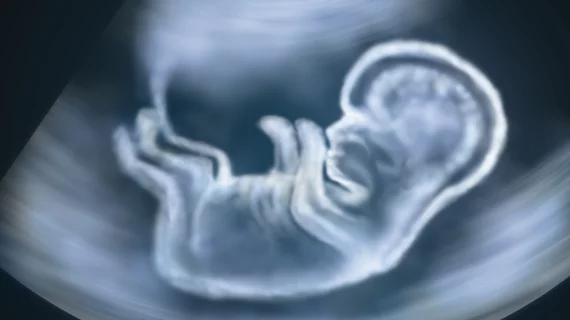Sonio rolls out AI-based fetal ultrasound training solution
A new artificial intelligence-based tool could help train providers in identifying and diagnosing a wide array of fetal conditions.
Soniopedia is the product of Paris, France-based med tech company Sonio. Ecole Polytechnique (the Polytechnic Institute, located in Palaiseau, France) joined Sonio in jointly filing a patent for the product.
It is not a medical device, but rather a platform containing a probabilistic AI model that has been trained on fetal medical data from numerous databases, like Omim, Orphanet and Human Phenotype Ontology (HPO). Its intended use is to familiarize medical professionals with prenatal diagnostics by simulating real cases.
The cloud-based solution will walk users through the entire diagnostic process, from obtaining and interpreting ultrasound images, to ruling out genetic abnormalities and more. Data incorporated into the model’s training include 4,684 malformations, 1,177 clinical signs and 479 syndromes, according to Sonio.
Soniopedia can manage more than 3,700 combinations of medical data derived from imaging, medical records, risk factors and genetic information to arrive at a diagnosis, offering real-time clinical support when needed.
In a release on the new product’s unveiling, Remi Besson, co-founder of Sonio, expressed optimism for how soniopedia could expand access to quality prenatal care for women.
“Soniopedia is primarily a training and educational tool that leverages artificial intelligence to simulate complex diagnostics, providing practitioners with in-depth clinical expertise on rare cases,” Besson said. “Our goal is to bridge the gap between theory and practice while promoting interdisciplinary collaboration. We aim to ensure that women worldwide have access to superior prenatal care.”
In addition to soniopedia, Sonio has other AI enabled applications that assist providers and sonographers. Sonio Detect—an AI solution that utilizes AI to guide ultrasound in real-time—received 510(k) clearance from the U.S. Food and Drug Administration in August of 2023.
To learn more, click here.

